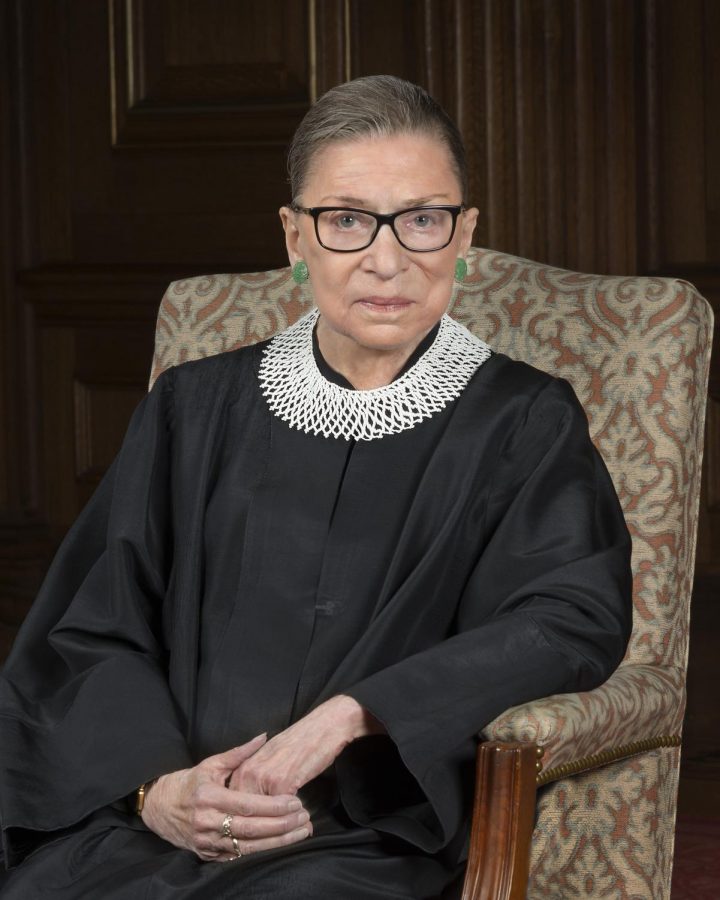The Lessons We Can Learn From the Notorious R.B.G.
Supreme Court Justice Ruth Bader Ginsburg poses for a picture in an undated picture.
October 7, 2020
Ruth Bader Ginsburg, the Supreme Court’s second female justice and feminist icon, passed away on September 18 due to cancer and became the first woman and Jew to lie in state at the capitol.
We must all follow her example by seizing the opportunities presented to us and continuing the fight for a more equitable society.
Ginsburg knew that she had more opportunities than her mother, a stellar student, who was forced to drop out of college so that her parents could send her brother to college.
“I pray that I may be all that she would have been had she lived in an age when women could aspire and achieve, and daughters are cherished as much as sons,” Ginsburg said when she was nominated for the Supreme Court by then President Bill Clinton in 1993.
Of course that doesn’t mean Ginsburg never faced discrimination. When Ginsburg entered Harvard Law School, she was one of only nine women in a class of more than 550, and the Dean of the Law School criticized her for taking up a man’s seat. Moreover, despite graduating at the top of her class, she was rejected for a clerkship at the Supreme Court and major law firms. When she became a professor at Rutgers University, the dean refused to pay her as much as her male colleagues.
Ginsburg fought her entire life for women’s rights, so women today wouldn’t have to face the discrimination she had to overcome. In her first Supreme Court case, she argued that a woman should be allowed to be an executor of estates, and the all male court unanimously agreed with her. She would go on to win four more cases concerning gender discrimination.
As a Supreme Court Justice she wrote the majority opinion that the Virginia Military Academy had to accept women. But her dissents were just as powerful. In the case of Ledbetter v. Goodyear, Ginsburg advocated for back pay for women who faced workplace discrimination which prompted former President Barack Obama to sign into law legislation that would guarantee back pay as soon as he became president. When the Supreme Court said Hobby Lobby could refuse women contraception for the religious beliefs of its owners, Ginsburg wrote a passionate dissent which will surely be referenced in future cases involving women’s reproductive rights.
We have to recognize that we have unique opportunities that were not available to previous generations. Women have the right to vote in this election and run for president because 100 years ago suffragists convinced Congress to pass the 19th amendment which gave all women the right to vote. Blacks have equal rights as whites because, 60 years ago, civil rights activists risked their lives to desegregate the South.
As the Black Lives Matter and the Me Too movement have shown, there is still work needed to be done to build a more equitable society where Black people don’t have to fear for their lives, and women can work free of harassment.
This is the world that generation Z has to build.

